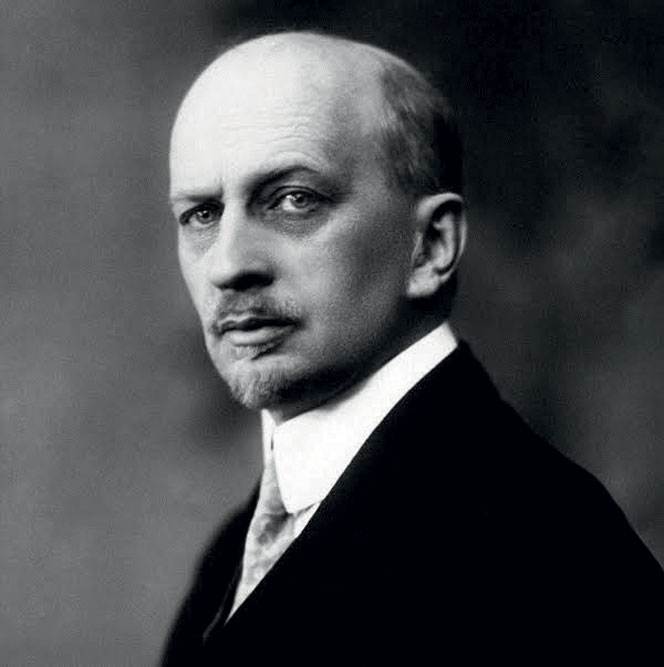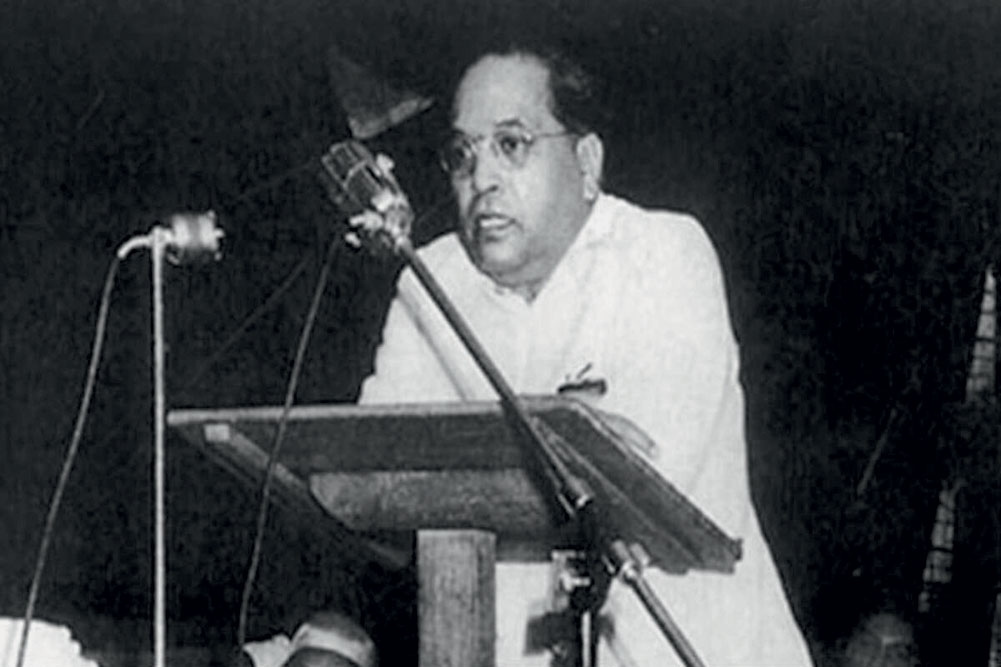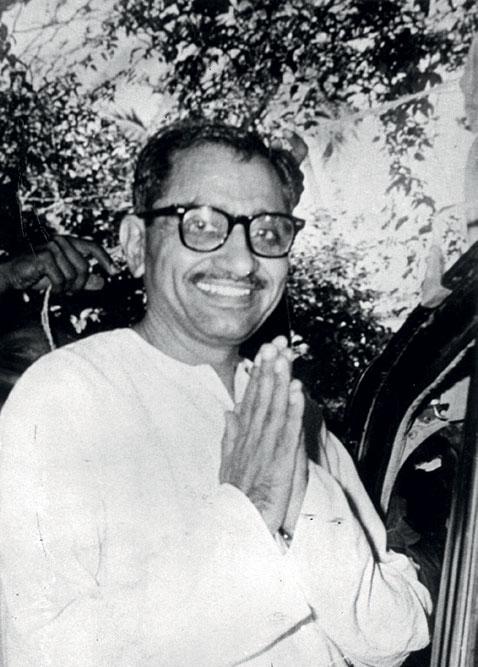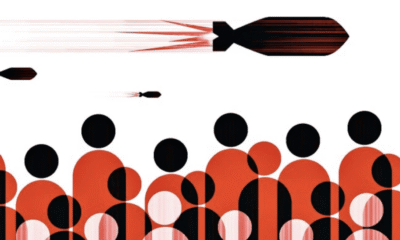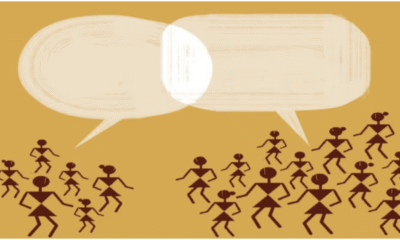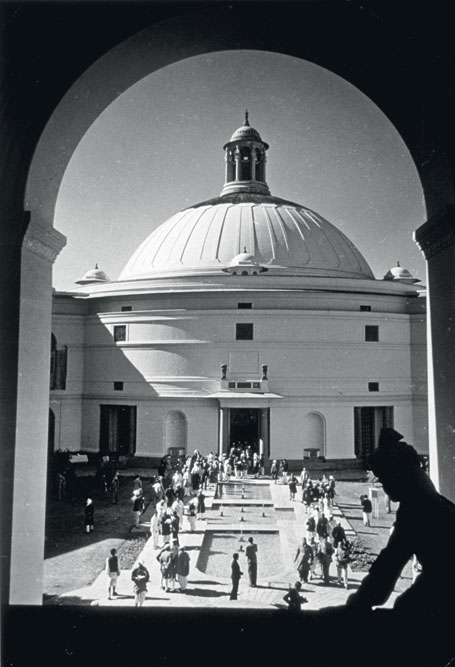
|
Getting your Trinity Audio player ready...
|
India needs to be wary of the new authoritarianism creeping across the world
DISASTERS, NATURAL OR MANMADE, have consequences. A hundred years ago, a pandemic came riding on the devastation caused by World War I, leading to the destabilisation of the world order of the new nation-states. The Great Depression of the 1930s had added fuel to the fire. The result was a decade of threatening communist and fascist authoritarianisms across Europe, culminating in World War II and great human suffering.
Out of this struggle and suffering rose democracies in large parts of the world after the end of World War II. When countries with huge populations like India opted for democracy, many more nations were encouraged to follow the bandwagon. By the end of the last century, more than 120 countries became functional democracies, including some from the erstwhile Soviet empire.
The Soviet constitution had a provision for republics to secede through a popular mandate. Nobody had dared to invoke it when Stalin, Khrushchev and Brezhnev were at the helm. But Mikhail Gorbachev had lit the fire by allowing free elections, and it became a wildfire engulfing the entire Soviet Union. One of the first to exploit it was Boris Yeltsin. Yeltsin was elected chairman of the Russian republic in 1990. When Gorbachev was put under house arrest by his own comrades in 1991, Yeltsin seized the opportunity from the reigning chaos and declared independence for Russia from the Soviet Union. The rest is history. The Soviet Union had collapsed like a pack of cards with republic after republic holding elections and declaring independence. The democratic fever had reached its peak when Vladimir Putin, whom Yeltsin had declared his successor in 1999, said that “history has proven that all dictatorships, all authoritarian forms of government, are transient. Only democratic systems are intransient”.
The collapse of the Soviet authoritarian regime together with the rise of democracies in almost all parts of the world had convinced Western scholars like Francis Fukuyama to conclude that the era of authoritarianism was over. “End of history,” they screamed and declared that the liberal democratic model was the only panacea for the future of mankind.
As the world was settling for democracy as the credible way came the rise of Islamic terrorism, followed by the economic debacle of 2008-10 that had wiped out the wealth of many nations and individuals. Economic downturn, Islamist aggression, terrorism and social inequalities had pushed the democratic world on the back foot.
The coronavirus pandemic has hastened that process further. The monumental human costs of the pandemic have pushed people more and more into the hands of governments in desperation. States with efficient systems and responsive public institutions have been able to manage the pandemic well, whereas those with built-in inefficiency failed miserably. In either scenario, people’s helplessness has been exploited by leaders usurping more powers and turning authoritarian in varied degrees. The world is once again witnessing with dismay the setting in of a democratic deficit and the return of the demons of dictatorship of the last century.
Xi Jinping is leading the charge of communist authoritarianism with the misleading motto that “authoritarianisms with efficiency” were better than “dysfunctional and incompetent democracies”. Many seem to be falling for it.
All communists are authoritarian, but not all authoritarians need be communist. In Russia, Putin began his career in 1999 on the anti-communist plank. But within a few years, he started invoking Ilyin as the role model for Russia. Ilyin (Vladimir Ilin) was also the pen name of Lenin, whose middle name was Ilyich. But the Ilyin that Putin was referring to was not a communist. He was the fascist philosopher of the last century, Ivan Ilyin. “The principle of democracy is the irresponsible human atom”, declared Ilyin, adding “we must reject the mechanical and arithmetical understanding of politics” as well as “blind faith in the number of votes”. He attempted facetiously to equate fascism with patriotism and claimed that it was nothing but the “redemptive excess of patriotic arbitrariness”.
Ilyin died in Switzerland in 1954 unmourned in Soviet Russia for his anti-Bolshevik fascism. But Putin intends to resurrect him. He was reburied in Moscow in 2005 under Putin’s gaze. Putin spoke about him often, inside the Duma and outside. His shenanigans are projecting Ilyin as the philosopher of Russia’s future. It suits Putin because Ilyin, in true fascist tradition, talked about a ‘redeemer’ who would be a godsend and save Russia from the communists on the one hand and the West on the other.
Many countries in the world are coming under the influence of either version of authoritarianism. An era of ‘managed’ or ‘guided’ democracies seems to have begun. Kenneth Roth, the executive director of Human Rights Watch, calls them “Zombie Democracies”, where the “leaders have held periodic elections to enhance their legitimacy but monopolized the media, restricted civil society, and manipulated state institutions and resources to ensure that they remained in power”.
Communist regimes like North Korea, Cuba and Vietnam, or for that matter the Islamist autocracies like Saudi Arabia and the UAE do not pretend to follow any democratic principle. Several regimes in Central Asia, the Middle East and Africa are also openly and unapologetically authoritarian. But it is the zombie democracies that are throwing up Ilyin-inspired pretenders in countries from Hungary and Belarus in Eastern Europe to Venezuela and Nicaragua in the Western hemisphere.
TWO DEMOCRACIES, THE oldest and the largest—the US and India—have thus far been able to largely avoid this trend, although they too occasionally demonstrated their vulnerability. Indira Gandhi’s infamous Emergency of 1975-77 was the darkest phase of Indian democracy while the US had in Donald Trump a president who took the country almost to the brink. However, societies in both countries demonstrated vigilance and dynamism to overcome those authoritarian challenges and restore the liberal credentials of their democracies.
Democracies in the West have come a long distance. It took more than two centuries for American democracy to mature. It had its first Black president after 220 years while a woman president is still awaited. Britain, too, struggled to balance monarchy, aristocracy and democracy in its political system. That was the reason why both Winston Churchill and Clement Attlee had reacted with scepticism when the Indian leadership declared its intention to opt for parliamentary democracy after Independence. Attlee, the British prime minister who granted independence to India, warned Jawaharlal Nehru in a letter: “The Asiatic republics are few and of recent establishment. Their record is not very encouraging. They tend to degenerate into dictatorships or oligarchies. They offer a prize for the ambitious authoritarian individual”.
There were domestic sceptics too, but Nehru categorically declared that “obviously we are aiming at democracy and nothing less than a democracy”. India proved all those sceptics wrong by building a vibrant democratic model in just seven decades after Independence.
Democracy, like any other political model, thrives only in the right environment. BR Ambedkar, in his famous concluding address, popularly known as the “Three Warnings Speech”, to the Constituent Assembly of India as the Chairman of the Drafting Committee, on November 25th, 1949, attributed it to the age-old ethos of India. “It is not that India did not know what is democracy. There was a time when India was studded with republics, and even where there were monarchies, they were either elected or limited. They were never absolute. It is not that India did not know Parliaments or Parliamentary Procedure. A study of the Buddhist Bhikshu Sanghas discloses that not only there were Parliaments—for, the Sanghas were nothing but Parliaments—but the Sanghasknew and observed all the rules of Parliamentary Procedure known to modern times. They had rules regarding seating arrangements, rules regarding Motions, Resolutions, Quorum, Whip, Counting of Votes, Voting by Ballot, Censure Motion, Regularization, Res Judicata, etc. Although these rules of Parliamentary Procedure were applied by the Buddha to the meetings of the Sanghas, he must have borrowed them from the rules of the Political Assemblies functioning in the country in his time”, he said.
Deen Dayal Upadhyaya, the leading light of the opposition Bharatiya Jana Sangh at the time, had added that the “Vedic Sabhas and Samitis were also organised on the basis of democracy, and many medieval states in India were completely democratic. We have confined the powers and privileges of kings and made them cater to the demands of the public”.
The architects of India’s Constitution, from Nehru and Patel to Ambedkar and Rajendra Prasad, were all committed democrats. So were other leaders like Gandhi and Upadhyaya. While those in the Constituent Assembly like Nehru and Ambedkar were influenced largely by Western models of democracy, Gandhi and Upadhyaya drew their inspiration from Indian experience. Together, they built strong foundations for India’s democracy by embellishing the Western democratic edifice with quintessential Indian wisdom and strong moralism.
Gandhi and Deen Dayal Upadhyaya did not endorse the majoritarian streak in Western democracies. “Democracy is not merely the rule of the majority. In a majoritarian government there will at least be one segment of the public whose voice has been stifled even though it may be right. This form of democracy cannot work for everyone’s welfare and good. Therefore, in any form of democracy in India, election, majority and minority, all must be combined and harmonized at one pace. Anyone, who has a different opinion from the majority, even if he is a single individual, his viewpoint must be respected and incorporated into the governance,” Upadhyaya insisted.
Gandhi, too, echoed similar sentiments in his writings in Young India repeatedly. “The rule of majority has a narrow application, i.e., one should yield to the majority in matters of detail. But it is slavery to be amenable to the majority, no matter what its decisions are. Democracy is not a state in which people act like sheep. Under democracy, individual liberty of opinion and action is jealously guarded. I, therefore, believe that the minority has a perfect right to act differently from the majority,” he wrote. “The rule of majority, when it becomes coercive, is as intolerable as that of a bureaucratic minority,” he warned.
Gandhi and Ambedkar represented two different spectrums of the political opinion at the time of the making of Indian democracy. But both had similar concerns with regard to its success. Gandhi’s insistence was that democracy should become the “sovereignty of the people based on pure moral authority”. Ambedkar warned that reneging on constitutional means and resorting to British-era tactics like non-cooperation, resorting to hero-worship and ignoring social democracy would surely lead to its downfall.
Both Gandhi and Ambedkar were responding to the experiences of their time—for Gandhi, democracy meant the weak getting the same chance as the strong. For Ambedkar, it was about giving voice to the voiceless.
For democracies to succeed, Gandhi and Ambedkar believed parliamentary majorities needed to be restrained through constitutional ethics and public morality. Enlightened public opinion is critical to democracy’s success. Julius Caesar’s story is a case in point to understand the nature of unenlightened public opinion. When Brutus murdered Caesar, the Roman public celebrated it. But when Mark Antony revealed Brutus’ deception, they went after Brutus. “It is difficult to keep democracy alive between the two forms of government—mobocracy and autocracy,” Deen Dayal Upadhyaya averred.
India has demonstrated in the last seven decades that the political morality of its citizens has been robust. Its keepers were not the political class but influential public institutions and NGOs like the Rashtriya Swayamsevak Sangh (RSS), the media and other civil society institutions. Their power was on display at the time of Emergency. When Indira Gandhi decided to revoke Emergency in March 1977, she did not anticipate the severe rebuke that she would get at the hands of the Indian electorate. It was so harsh that both she and her son had lost their elections to Parliament in 1977. This enlightened public opinion had sailed Indian democracy through fractured mandates, coalition experiments and short-lived governments to the stable, full-majority regime of the present, each time testing the mettle and steadfastness of its leaders. When the leaders were found wanting, it did not hesitate to change them.
IT IS NOBODY’S claim that democracies are perfect political systems. Churchill used to quip that democracy was the worst form of government “except for all the others”. Nehru held the same opinion: “Democracy is good. I say this because other systems are worse. So we are forced to accept democracy. It has good points and also bad. But merely saying that democracy will solve all the problems is utterly wrong. Problems are solved by intelligence and hard work”.
Zombie-isation is a real threat all countries in the democratic world face today. The vulnerabilities of democracy can be exploited if the rulers are selfish and the ruled foolish. After all, as Timothy Snyder pointed out in his book The Road to Unfreedom, “what robber would not prefer to be called a redeemer”. That is what is leading to the spectre of authoritarianism looming over many democracies. It could only be ‘transient’ as Putin pointed out two decades ago. Yet, it would cause huge devastation as witnessed in the last century.
Such an eventuality can be averted by functioning democracies like America and India coming to the aid of the weltering ones. The sad reality, though, is that it was the Nixon-Kissinger duo who had legitimised Mao’s autocracy in the 1970s while George HW Bush was desperately appealing to the Soviet republics not to destroy the Union in the 1990s. While they lectured fellow democracies like India on human rights and civic freedoms, from Ronald Reagan to Trump, the US unabashedly sided with autocrats and authoritarians in the Middle East and elsewhere.
Democracies can survive only when leaders scrupulously adhere to constitutional ethics.
It is about respecting constitutional order, conventions and public institutions. The Americans have a written constitution, the British don’t. Yet both developed healthy conventions that safeguard their democracies. There is a beautiful convention in the US of the outgoing president leaving behind a handwritten letter for the incoming one which the new incumbent of the White House would get to see on the first day in the Oval office. “We are just temporary occupants of this office. That makes us guardians of those democratic institutions and traditions—like rule of law, separation of powers, equal protection, and civil liberties…Regardless of the push and pull of daily politics, it’s up to us to leave those instruments of our democracy at least as strong as we found them,” Barack Obama wrote in his letter to Trump in January 2017.
As India enters its 75th year of independence, this history, this present and these warnings are as much relevant to it as to any other democracy.
(The article was originally published in OPEN Magazine on August 13, 2021. Views expressed are personal.)


